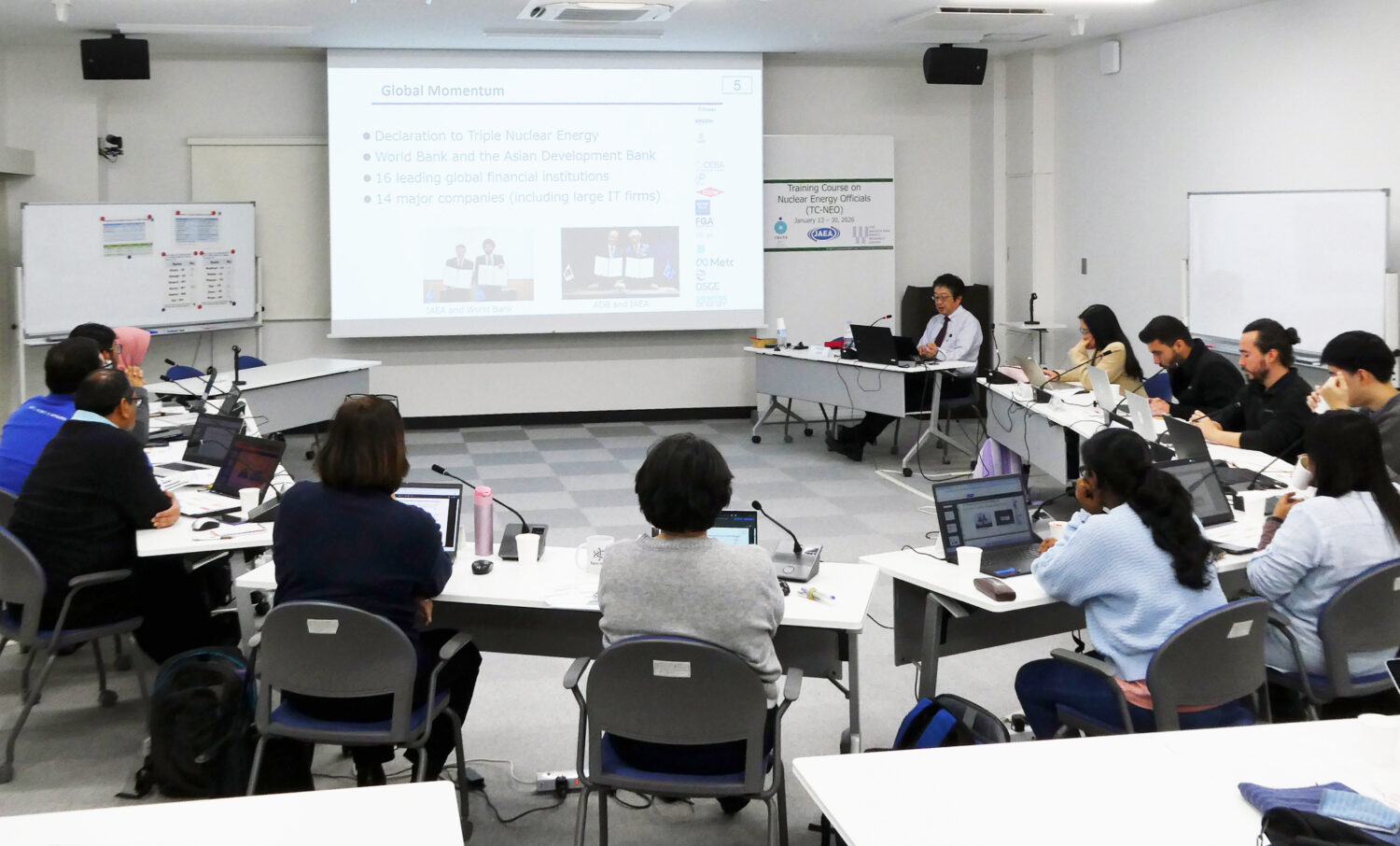The representatives from METI primarily explained the Ministry’s activities for the development of advanced reactor technology in terms of international cooperation and infrastructure for human resources, technology and industry. To facilitate effective participation in overseas projects, the Ministry will recognize “advanced supplier consortiums” for each reactor type in order to receive public and private support. Those will comprise domestic supplier teams to carry out the design, development and commercialization of the equipment, facilities and component materials needed for advanced reactors.
Also in regard to advanced reactors, the Nuclear Energy Subcommittee under the Advisory Committee for Natural Resources and Energy issued technological roadmaps in August for the development of advanced light water reactors (LWRs), small LWRs, fast reactors, high-temperature gas-cooled reactors (HTGRs) and nuclear fusion reactors, toward their introduction.
At the same JAEC meeting, METI’s budget requests were explained by ENDO Ryota from the Nuclear Energy Policy Planning Division of the Agency of Natural Resources and Energy (ANRE). He pointed out how the budget requests for the support of the nuclear industry and technology had expanded from the previous year, including increased sums for the development of technology to enhance the safety of LWRs and the development of fast reactors and other advanced technology.
In contrast, he pointed out that while the budgets for advanced reactors had been around JPY10 billion before the nuclear accident at Fukushima Daiichi, they were subsequently reduced to less than half that over the past decade.
Expressing his concerns for the current difficulties experienced in maintaining the infrastructure for maintaining human resources and technology, Endo noted that one future issue was the need to accumulate information and knowhow on project organization and management, including that on the inclusion of private companies.
Toward securing markets overseas for advanced reactors, he noted the following plans:
- A lead manager, either the Japan Atomic Energy Agency (JAEA) or plant vendors, will be decided for each reactor type, with potential suppliers to be identified and information to be provided from both public and private sources.
- Performance results and technological strengths of prospective suppliers will be sent to overseas parties in cooperation with the Japan Atomic Industrial Forum (JAIF).
- Exports will be backed up financially in cooperation with governmental financial institutions.
- In addition, in order to comply with overseas requirements and standards and to improve equipment and facilities accordingly, METI indicated its intention to establish a mechanism for “advanced supplier participation” to support R&D on equipment and component materials and demonstrations of performance for advanced reactors.
An advanced-reactor supplier consortium is to be organized for each reactor type. For example, JAEA may become the lead manager for HTGRs, and Hitachi GE for the BWRX-300 (a small modular boiling water reactor project being carried out in Canada). METI will address specifics based on JAEC’s opinions so that the system may effectively lead and direct R&D and overseas marketing.
The September 6 meeting also discussed R&D on HTGRs and the development of nuclear human resources being carried out by MEXT. UESAKA Mitsuru, who chaired the meeting, emphasized that “those efforts should not be isolated domestically.” He called for cooperation with such entities as the U.S. Department of Energy (DOE), the International Atomic Energy Agency (IAEA), and the OECD Nuclear Energy Agency (OECD/NEA).



-013.jpg)






